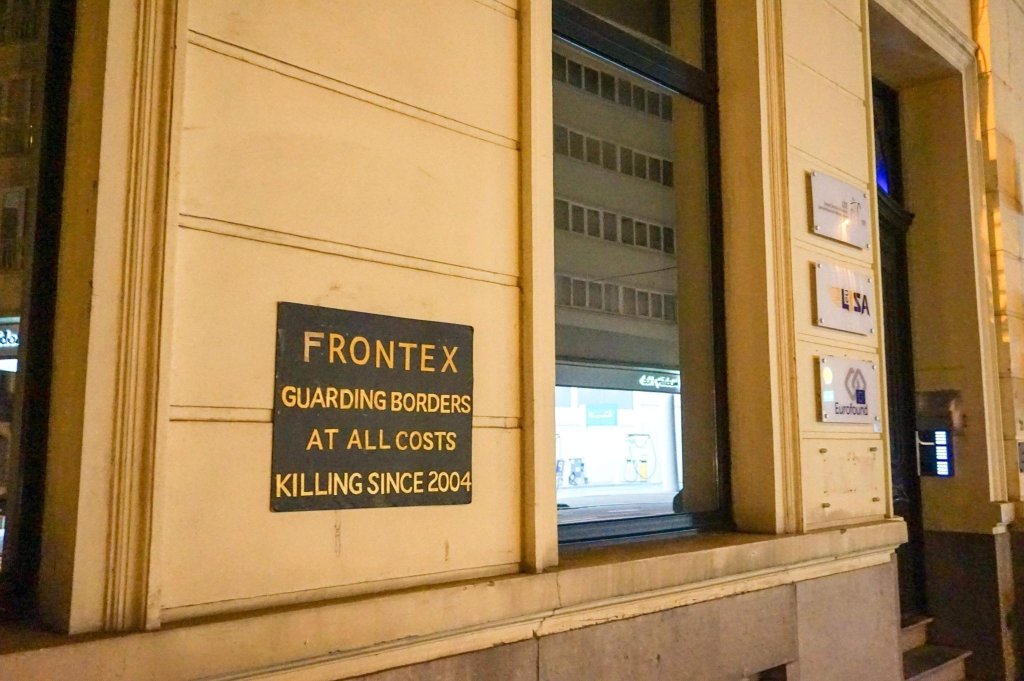Picture of a sign on the wall of Frontex offices in Brussels at the occasion of the agency 20-year anniversary. Credits: Sea-Watch international on X, 26 October 2024.
On 13 December 2024, de:border // migration justice collective and Legal Centre Lesvos provided their joint input to the UN Special Rapporteur on the human rights of migrants’ report on the ‘phenomenon’ of missing migrants – human rights analysis.
Based on our experience working in Greece and along Europe’s external/ised borders, the joint submission exposes our analysis of the root causes of migrants’ disappearances during border crossings and of the harmful impacts of direct state actions such as systematic pushbacks and non rescue policies endangering migrants.
The joint submission further highlights how disappearances are per se a border control strategy of deterrence. It also provides evidence on the systemic practices of denial and concealment of violence as well as the structural barriers to the investigation and remediation observed in Greece, which hinder access to any form of justice and accountability for border violence, deaths and disappearances.
The submission finally provides a series of recommendations for the states and international bodies to, amongst others, adopt reforms to ensure safe and legal migration routes, accountability for border deaths and disappearances, and comprehensive support for families searching for missing loved ones.
Current border policies that entail the in/direct endangerment, abandonment and unprotection of ‘illegalised’ border crossers are forms of in/direct enforced disappearances. The acknowledgement and recognition of this reality is the foremost step towards accountability and justice. States should acknowledge and act on their positive obligations to take proactive responsive measures to secure the rights of those who have disappeared or perished and their families and loved ones. It is equally critical that international authorities and courts understand that current border regimes enable such violence and routinely deny accountability for such acts, including in the exceptional cases that can be evidenced and brought before national courts. Even if such individuated cases would result in investigation and prosecution, they would not bring the kind of justice and transformation needed to address the reality of enforced disappearances.

